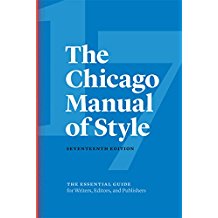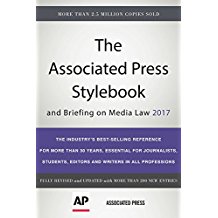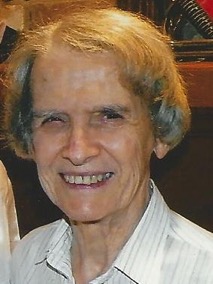
In an effective critique pod, every person in the small group comments on the other members’ work. That can seem overwhelming to a new writer. Even experienced journalists, I’ve learned to my amazement, can feel unqualified to criticize someone else’s writing, but an English major isn’t required.
WAG’s pods are designed to be genre specific. Therefore, as a fan of the chosen genre, each pod member represents a potential reader. Writers need readers. They work to communicate their stories or poems, to share their visions with readers. In The Weekly Standard, Danny Heitman quotes novelist Shirley Jackson, who said in her posthumously published collection, Let Me Tell You: New Stories, Essays and Other Writings:
Far and away the greatest menace to the writer—any writer, beginning or otherwise—is the reader . . . all he has to do, after all, is shut his eyes, and any work of fiction becomes meaningless.
Reaching the reader does challenge the writer’s skill, and what Jackson said about fiction also applies to other writing. Pod members are readers who note their suggestions for facilitating the flow of the ideas in the writing. Critiques include attaboys for good descriptions, and comments such as “I had to reread that sentence to understand it.” Read Kaye Linden’s blog Fifteen Feisty Tips on the Skill, Art and Diplomacy of Critique for overall rules and ideas. My focus here is on the details of critiquing within WAG’s pods.
Pods vary in the kind of critique, depending on members’ preferences. Some concentrate on the overall narrative, ignoring many details like punctuation and formatting. They look for confusing passages, ambiguous sentences, and unnecessary repetitions. They may note that a character introduced early and referred to later calls for a simple clue to remind a forgetful reader. They may suggest a more descriptive or more active word or note redundancies. Transitions and the integration of back stories may need attention to smooth the communication. These are the kinds of problems that detune the story and that the pod members can point out for a writer.
My pod does that and also addresses technical details such as punctuation, word usage, and formatting. In addition to critique of the narrative, we address punctuation, grammar, and even spacing between sentences, the kinds of details you need to clean up for publication. I appreciate the through going-over because I experienced the agony of self-publishing my husband’s book, reading the proofs a gazillion times, and finding in the finished work still more slip-ups I’d missed. Yes, every revision in the document can introduce errors, but by trying to keep each draft clean, you have fewer glitches to locate at the end.
You don’t have to be a grammar expert to do a thorough critique. You can find many answers online, such as at Purdue Owl and Grammar Girl’s Quick and Dirty Tips. Google will also list a variety of authorities. One person in my pod recommended a site to help locate verbs that could be more active. Copy and paste your work into the block on Aztekera. Go to the bottom of the block and click “check.” It will immediately highlight all “to be” verbs and tell you the percentage at the bottom of the page. The goal is 20% or less.
Highly regarded Daily Writing Tips answers some questions for free, but a subscription gives you more answers and a daily email about writing (currently $4.99/month or $49/year). When Writing Tips didn’t offer a free answer regarding “that vs. which,” I used diffen.com to check the use. One pod member found help with “Punctuation in Dialogue” on The Editor’s Blog. Our pod once debated the proper way to write x-ray and styrofoam. Both are “genericized” trade names, according to Wikipedia.

 In some cases, of course, there are differences of opinions about rules. For example, the question arose in one pod meeting: How should we write the possessive of a singular noun ending in “s,” such as Louis? The Associated Press Stylebook says to just add an apostrophe: Louis’. However, the premier editing source used by many publishers, The Chicago Manual of Style Manual, says to add an “s” after the apostrophe: Louis’s. The Chicago Manual is available either by subscription online at $39/year, or by purchase at book stores. Our pod member with access to the Chicago Manual keeps us aware of its recommendations. Be forewarned, though, the rules change with time, and we know we will need to match the specs of a publisher when and if that time comes.
In some cases, of course, there are differences of opinions about rules. For example, the question arose in one pod meeting: How should we write the possessive of a singular noun ending in “s,” such as Louis? The Associated Press Stylebook says to just add an apostrophe: Louis’. However, the premier editing source used by many publishers, The Chicago Manual of Style Manual, says to add an “s” after the apostrophe: Louis’s. The Chicago Manual is available either by subscription online at $39/year, or by purchase at book stores. Our pod member with access to the Chicago Manual keeps us aware of its recommendations. Be forewarned, though, the rules change with time, and we know we will need to match the specs of a publisher when and if that time comes.
 I’ve learned a lot from our discussions. They have been more effective than the creative writing course I took in college. Now I have four or five teachers instead of just one. When they don’t agree, I can choose whose advice to take, or ignore them all. After I’ve reviewed the submissions from the others and made all the recommendations I can think of, I learn even more when I study how the other pod members edited those same pieces, seeing how they differed from mine and what I missed. And it’s all stress-free— I’m not competing for A’s on my work!
I’ve learned a lot from our discussions. They have been more effective than the creative writing course I took in college. Now I have four or five teachers instead of just one. When they don’t agree, I can choose whose advice to take, or ignore them all. After I’ve reviewed the submissions from the others and made all the recommendations I can think of, I learn even more when I study how the other pod members edited those same pieces, seeing how they differed from mine and what I missed. And it’s all stress-free— I’m not competing for A’s on my work!

Mary Bast
An intelligent and thoughtful summary, Joan. Thanks, too, for the links.
joan
I’m glad you liked it, Mary. I keep forgetting to use the Aztekera site, but it’s made me very aware of weak verbs as I’m reading!
Patsy murray
Excellent suggestions Joan! You avoid very well getting old.
joan
Thanks, Patsy. I’ve had some good teachers in my pod. And pod inspiration is a big part of avoiding old age.
Ann~Marie Magné
A great blog post, Joan. You have earned an A, without competing for it.
joan
Thanks, Teach. You’ve done your part in our pod, helping me learn to write.
Skipper Hammond
Good insight into how folks in your pod help each other. I especially like the idea of pod members serving as readers. We writers, cooped up with cat and computer for long hours, tend to forget that people outside ourselves exist, people called readers, the people we’re writing for.
joan
Thanks, Skipper. And I hope my ideas help you in your pod coordinator position to impress on new pod members the importance of their reader function.